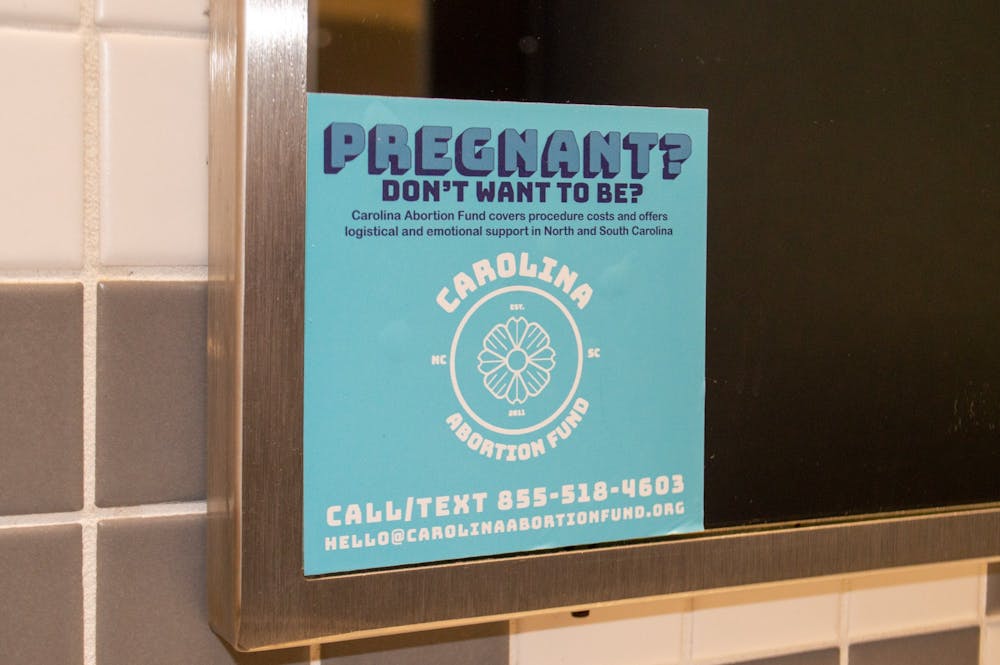The two main types of abortion are medication abortion and surgical procedure, which vary in cost. A medication abortion involves taking pills to detach the embryo from the uterus and push it out the body. This is mainly applicable to pregnancies before 10-weeks gestation. Second and third trimester medication abortions involve inducing labor through drugs that result in the delivery of the fetus and placenta.
Surgical abortions are done by opening the cervix and using instruments to extract the pregnancy from the body, but the specific procedure is determined based on the fetus' gestational stage.
Community Pregnancy Center of Lake Norman lists the following prices for abortion in N.C.:
- Medication abortion (within 10 weeks gestation): $350-$650
- Suction Aspiration/Vacuum abortion (6-12 weeks gestation): $600-$1000
- Dilation and Curettage (13-16 weeks gestation): $850-$1600
- Dilation and Evacuation (17-21 weeks gestation): $1500-$2100
Dr. Jill Hagey, clinical fellow in the UNC Department of Obstetrics and Gynecology, said there are many factors that contribute to the cost of abortion care, such as type of procedure, location and level of additional support. Most abortions in the United States are performed in the first trimester.
However, Hagey said one-day procedures will be of the lowest cost to patients while some have to undergo two-day procedures.
“Hospital-based care does tend to be a little bit more expensive when you're talking about doing it in the operating room-setting just because of the number of team members that it takes to run the operating room in the safest way possible,” she said.
Planned Parenthood is typically the cheapest option for abortion care, Justine, executive director for the Carolina Abortion Fund, said.Private clinics are typically more expensive than a Planned Parenthood but less costly than a hospital, she said.
“But Planned Parenthood may, in your area, have more restrictions on what they can or can’t perform,” she said.
Supplemental costs and financial circumstances
In addition to the procedural cost, many individuals must evaluate supplemental expenses to their abortion care such as transportation, childcare and lost wages.
Someone seeking abortion care should be aware of the transportation required for their consultation and one or two-day procedure. If sedation is involved in the procedure, most clinics and Planned Parenthood require a patient to bring a driver with them.
To get the day's news and headlines in your inbox each morning, sign up for our email newsletters.
Although transportation is often seen as a cost barrier to abortion, the Triangle area has a a higher number of nearby clinics compared to other regions within N.C., said Alice Cartwright, a doctoral student within the Gillings School of Global Public Health who has researched abortion acccess.
In supplement to transportation expenses, some states offer telemedicine consultation for medication abortion. N.C. is not one of them. Telemedicine can save time and money if the pills are shipped rather than visiting a clinic, Cartwright said.
The Carolina Abortion Fund is one organization that has been able to expand their aid from mere procedural costs to holistic costs like gas money, lodging and food, compensation for lost wages and childcare support.
Justine said CAF provides the most supplemental funding support for childcare expenses and lost wages. The majority of people getting abortions in the U.S. are already parents, which is why childcare is a common hidden cost people seek aid for, she said.
Insurance and Medicaid coverage
Some insurance plans automatically cover abortion, but most require people to opt-in to this specific type of care, Justine said.
Student Blue, the UNC System’s student health plan, provides students with limited abortion benefits. To receive additional benefits, a student must actively enroll or call to change policies before receiving services.
Cartwright noted that although many people have insurance that might cover abortion, a lot of people don’t want to use it in fear of who might see the charges on their insurance bill.
"You know, if (the students) don't share the same views as you it can be extremely difficult to ask like, 'Hey, mom and dad am I covered for it?'," Justine said.
34 states, including N.C., do not cover abortion under their Medicaid programs, with some limited exceptions.
Impact of the Dobbs case
Since the decision of Dobbs v. Jackson Woman’s Health Organization, Hagey said that N.C. clinics have seen an increased number of patients seeking care who are traveling from other states.
Hagey added that it’s too early to know exact numbers of how abortion costs might rise since the Dobbs decision.
Patrick Morgan, an attorney for Morgan & Cesanelli Law, said he doesn’t anticipate abortion being a serious legal issue in N.C. He said the main cost he recognizes is the potential health problems experienced by people who have been deterred from abortion care.
“And that spills over into health problems, you know, with unhealthy babies, unhealthy mothers, and just women in general who are not getting the health care they need," he said.
@dailytarheel
university@dailytarheel.com




